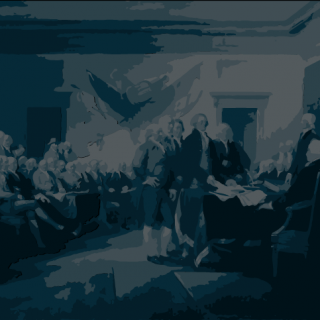About vaccines is it better to tell the truth or lie?
Today’s title is the synthesis of a much-heard debate among scientists. They ask if it is “more convenient” to communicate with transparency data of vaccinations (especially those that describe the efficacy and adverse events), going to meet an understandable decline in membership, or hide the truth in order to broaden the consensus, however at the expense of a collapse of confidence in the institution health.
The theme, however, is not limited to vaccinations but concerns the entire health universe. The patient who perceives that he has been deceived (either for profit reasons or because he realizes that the doctor or the institution has lied to him) will not have the same disposition of mind as those who notice a health error made in “good faith”. “You are willing to forgive even the death of a spouse when you realize that in the face of their loved one has been made – I was a primary hospital – on the contrary, if a family member perceives the doctors ‘ lack of interest, or negligence is not willing even to sign up for organ donation”.
It came out on Pnas a study that analyzes the same provisions towards covid vaccinations.
Click on the blue to read the entire pdf, here for the abstract.
I advance the conclusions of the American and Danish authors.
“Based on pre-recorded experiments conducted on large and representative samples of Americans and Danes (N > 13, 000), the current study contrasts the effects of a vague communication use of the vaccine with a transparent communication, which reveals the characteristics of the vaccine both positive and negative. Evidence shows that transparent negative communication it can actually harm vaccine acceptance here and now, but it increases trust in health authorities. Also, the alternative of vague and reassuring communication does not even increase the acceptance of the vaccine and leads, both to less trust, and to greater approval of conspiracy theories”.
Read:
“Professionals sometimes fear that full transparency can cause emotional discomfort in patients; incentive the lack of transparency during the COVID – 19 pandemic relate more to the massive pressure to end the pandemic as quickly as possible and, therefore, to the incentive not to disclose information that could compromise the acceptance of the vaccine. These incentives may be greater because health communication during the pandemic is heavily influenced and often conducted by politicians. As evidenced by a rich history of research in political science, politicians are motivated by short-sighted lenses and they can prioritize short-term successes over building trust for the next health crisis.”
Read:
“In the field of vaccines for COVID-19, the negative information may relate to the fact that the difficulties of production and distribution require the use of vaccines with efficacy and lower major side effects compared to other vaccines; they could emerge news in undesirable side effects in long-term duration of immunity after vaccination may be less than expected; and the effectiveness may decrease with respect to variations new and emerging. The studies suggest that such negative information (for example, information about lower efficacy and side effects) may reduce the acceptance of vaccines in general and COVID-19 vaccines in particular . This has been a real concern for health authorities in both Europe and the United States.
Also, several Countries around the world, including western democracies, have launched vaccination campaigns without, or before, the publication of the results of the phase III trials” .
The call for transparency
However, the authors report that different research institutions invite to the disclosure transparent (the initiative DELVE of the Royal Society, an editorial in Nature to the “radical openness” and Mahase for the “real transparency”), “although the discovery of the limits of vaccines or complications may have a greater adverse impact on the consumption of the same,” because discovering these facts, then, “would probably have a negative impact worse.
“Importantly, these calls for transparency resonate as a series of criticisms of the lack of transparency in previous but small-scale immunization campaigns.”
The authors found that vague communications “arouse feelings of uncertainty” and that these “are fertile ground for mistrust and conspiracy convictions”. And then, they admit that, “while transparent disclosure of negative vaccine information may elicit rationally based vaccine hesitation, the alternative of vague communication can elicit hesitation based on conspiratorial beliefs”.
Conclusion
“These results – write the authors-underline that transparency in itself cannot reduce immediate scepticism about vaccines, but transparency is still crucial to sustaining long-term trust and avoiding the spread of conspiratorial beliefs. Moreover, while there are clear short-term costs to Transparent negative communication, there are no benefits from reassuring the public about the safety and efficacy of the vaccine using vague communication, which leads to both short-term skepticism about the vaccine and long-term mistrust of the authorities. Therefore, the current findings provide a clear warning to health authorities and policymakers against succumbing to the use of vague communication to meet short-sighted goals of increasing vaccine acceptance here and now.”
He who has ears to hear, let him hear (LK 14: 35)
Original source: https://blog.ilgiornale.it/locati/2021/08/03/sui-vaccini-e-meglio-dire-la-verita-o-mentire/






